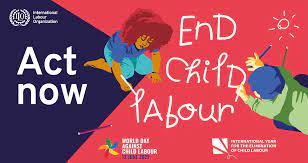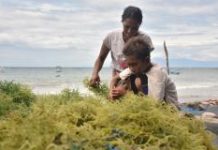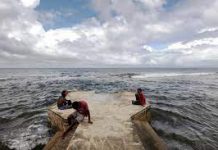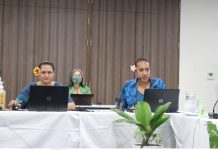By Matin Karimli and Sheldon Yett
Child labour remains a persistent problem in the world today, including in the Pacific Islands, jeopardising children’s future.
Every child has a basic right to protection, as defined in the Convention on the Rights of the Child, “The right of the child to be protected from economic exploitation and from performing any work that is likely to be hazardous or to interfere with the child’s education, or to be harmful to the child’s health or physical, mental, spiritual, moral or social development.”
Child labour has devastating consequences for a child’s education, skills acquirement and ability to overcome the vicious circle of poverty, incomplete education and fewer job opportunities. Additional economic shocks and school closures caused by COVID-19, combined with income losses among vulnerable families, puts children at even greater risk.
The United Nations has declared 2021 as the International Year for the Elimination of Child Labour; a major milestone of the year being the launch of the critical report Child Labour: 2020 Global Estimates, trends and the road forward on 10 June. It is the first ever joint ILO-UNICEF report on child labour data estimates and forms.
Children are vulnerable to child labour due to poverty, weak education and social protection systems, social norms that encourage children’s work, and weak child protection legislation, law enforcement and services.
With the impact of the global pandemic putting more children at risk of worsening child labour, the report urges governments and international development organisations to prioritise investments in programmes, such as social protection, that can help families avoid making this choice in the first place.
Working children are at risk of physical and mental harm. Child labour compromises children’s education, restricts their rights, limits their future opportunities, and leads to vicious inter-generational cycles of poverty and child labour. The ILO and UNICEF in the Pacific are calling for:
1. Adequate social protection for all, including universal child benefits.
2. Increased spending on quality education and getting all children back into school- including children who were out of school before COVID-19.
3. Investment in child protection systems, including prevention, early intervention and response.
4. Promotion of viable work for adults, so families do not have to resort to children helping to generate family income.
5. An end to harmful gender and other social norms and discrimination that influence child labour.
PACIFIC ACTION
The Measurement, Awareness-raising and Policy engagement Project to accelerate action against child labour and forced labour (MAP16 Project) is a development cooperation project managed by the International Labour Organisation and funded by the United States Department of Labor. Fiji is one of the countries that is implementing the MAP16 project with support from the Ministry of Employment, Productivity, and Industrial Relations, Fiji Commerce & Employers Federation and Fiji Trade & Union Congress. To date, this work has included building the knowledge base on child labour through stakeholder consultation at the national, industry and community level, and advancing awareness in communities by collaborating with key stakeholders who work with children.
The work is supported by the Alliance 8.7, a global partnership to end child labour, forced labour, human trafficking and modern slavery. The Alliance is actively working with 22 ‘pathfinder countries,’ including Fiji, and over 200 partner organisations to accelerate action, share knowledge and implement innovative solutions on the ground. It is important to develop these solutions together with schools, families, local authorities and organisations while also listening to the voice of children.
In Fiji, and across the Pacific Islands, UNICEF is supporting the strengthening of the multi-sector child protection system to prevent and respond to child neglect, abuse and exploitation. UNICEF works with ministries responsible for social welfare, education and health, the judiciary and the police, to develop and implement child protection legislation, policies, plans, procedures and inter-agency guidelines.
UNICEF supports the training of social workers, health professionals, teachers, police and court officers on knowledge and skills needed to work with children in need of care and protection and their families. Working with vulnerable families and ensuring they have access to guidance, social protection schemes and other services is a key strategy to prevent and respond to child labour. UNICEF also supports community programmes to address social norms that are harmful to children, promote parenting skills and strengthen the capacity of communities to protect their children. UNICEF is supporting a Multiple Indicator Cluster Survey which will provide data on child labour.
The International Year provides an extraordinary opportunity to bring partners together, to learn from each other and to put proven and innovative measures into practice to protect the rights of children.
In Fiji, eleven pledges have been received to date from the Fijian Government, trade unions, academic institutions, NGOs and more – demonstrating an encouraging commitment by Fiji. It is also reassuring to note that one of the Fijian Government’s four pledges includes finalisation of the National Child Labour Policy in 2021.
There can be no one-size-fits-all solutions; responses need to be adapted to the very diverse environments in which child labour still occurs. Each and every action – whether taken by a government or an individual – helps lay the foundation for a world in which children enjoy their childhood.
We encourage you to join us and to take action to end child labour now.
SOURCE: ILO/UNICEF/PACNEWS


















